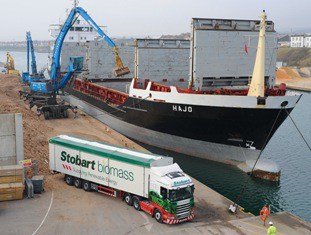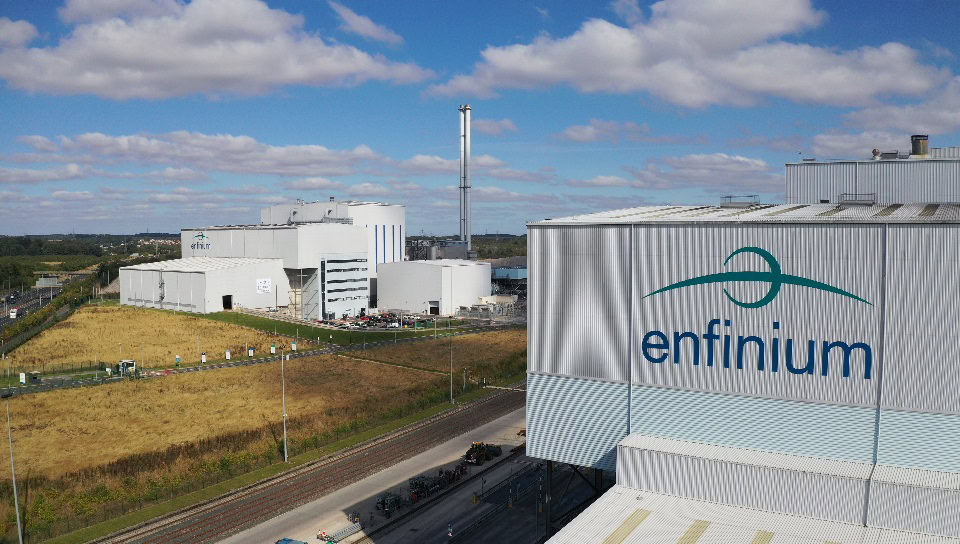
Speaking to letsrecycle.com, Stobart’s Richard Butcher was optimistic about the future of the wood recycling industry and said that the energy side of the UK logistics company was set to exceed its own biomass fuel supply targets in the coming years.
He also said that the addition of several long-term biomass supply contracts signed by the firm in 2015 would necessitate its addition of further waste wood processing sites across the UK in the next 3-6 months, and called for a “common-sense approach” to storage and fire safety regulation.
The comments follow the publication last month (October 22) of Stobart’s interim financial results, showing continued growth in the Group’s energy and biomass operations and putting Stobart Energy on track to exceed its target of supplying two million tonnes of biomass fuel per year by 2018.
But, according to Mr Butcher, the company currently estimates that it will be supplying in the region of 2.5 million tonnes of biomass fuel (around 500,000 tonnes from virgin sources) by this date, after it commences long-term supply contracts with a number of biomass plants under development up and down the UK.
In the last year alone, the firm has signed multi-million pound deals to supply Brite Partnership’s 40MW facility in Rotherham as well as the ECO2 biomass plants in both Margam, South Wales, and Port Clarence in Teesside.
This comes on top of existing supply contracts, including the 16-year agreement for 146,000 tonnes of grade C wood into the Widnes facility in Merseyside.
Capacity
There are a number of biomass plants set to come online in the next five years, and asked whether he thinks there will be enough waste wood feedstock in the UK to satisfy biomass capacity, Mr Butcher said: “We certainly believe so and that is a common question we ask ourselves.
“For investors as well the key question is ‘is there the amount of wood available on a long term basis at the right spec?’ So all these things are looked at in depth.”
[testimonial id = “292” align=”right”]
He added: “These plants don’t come cheap. With the best will in the world these investors want a long term market and realistically we are the leading, bankable player in the UK, so we are going to have a reasonable idea of what is going on in the market place. I don’t think anybody is going to spend that amount of money unless they can get the feedstock.”
Furthermore, Mr Butcher suggested he did not believe an increase in domestic biomass feedstock would have too big an impact on the export market, with Stobart itself aiming to export around 300,000 tonnes of material – largely into the panel board sector in Northern Europe.
Mr Butcher said: “We believe there is going to be a strong export market and we have a number of customers in Europe and we want to keep that going.”
Seasonality
Instead, he said that the current seasonality of the UK waste wood market – which sees rising gate fees in summertime when there is little lower grade material moving through the supply chain– could be eased by having more UK biomass plants working throughout the year.
Mr Butcher said: “We are going to get to a point where we need a consistent supply of material [in the UK]. There will be less of a problem when more of those plants come on stream – and they are geographically spread.”

Regulation
With regards to Environment Agency regulations and its Fire Prevention Plan guidance – which has angered some wood recyclers and forced Hadfield to close its gates to incoming lower grade material in the North – he said Stobart “obviously work very closely with the Environment Agency and we have a very productive relationship” at its sites.
Fire tests had been due to take place at Stobart’s Pollington wood site recently in partnership with fire services and the WRA with the aim of influencing policy on fire safety at wood sites, but these tests have now once again been delayed due to the recent waste fire at Great Heck.
With regards to regulation going forward, Mr Butcher said: “At the end of the day there has to be common sense – and we are confident we can reach a sensible solution. I don’t think anybody wants to see waste stored in an unsafe manner. It needs to be a balanced approach.
“We want to be best in class and we want to work with the EA to set the standard in the industry.”
New sites
Stobart aims to be processing a large proportion of the waste wood it needs at its own sites, and Mr Butcher said the company was therefore going to need “processing sites at key locations in the country”.
He added that there would be “a lot of announcements on new sites in the next 3-6 months” as these need to be in place before the end of 2016, while the company was also investing heavily in new processing machinery, including slow to medium speed shredders.
Mr Butcher said: “We are just going through some planning applications for some other sites, but we would also be looking to source the material from other players in the industry on a long term basis. That should bring some stability to the market place as well.”









Subscribe for free